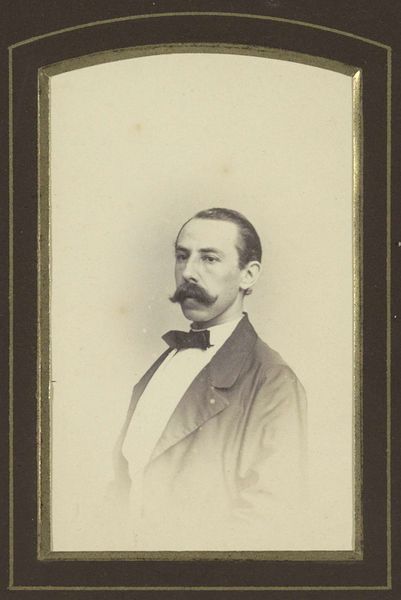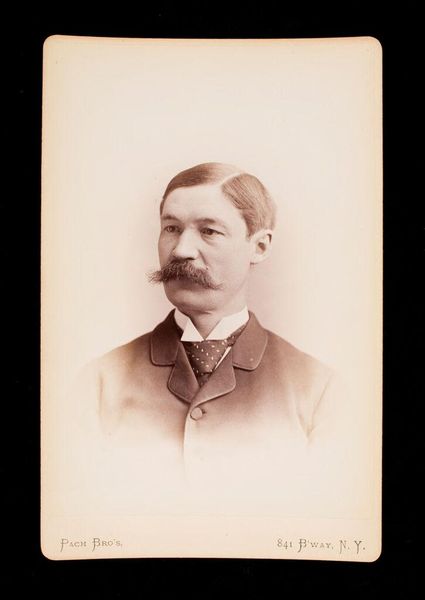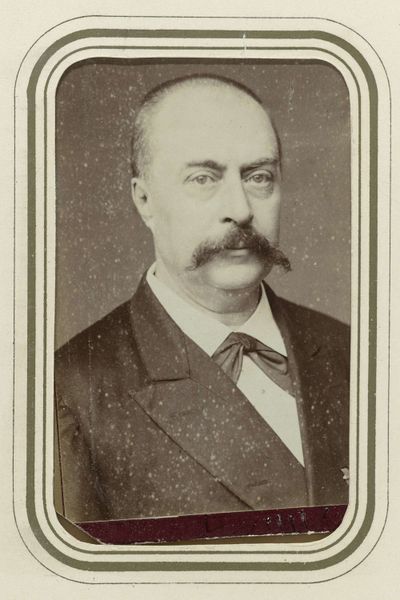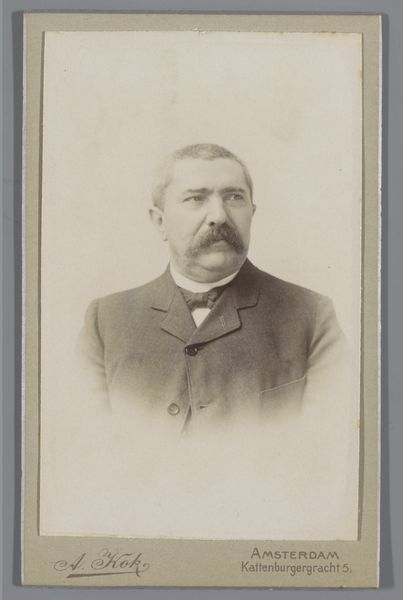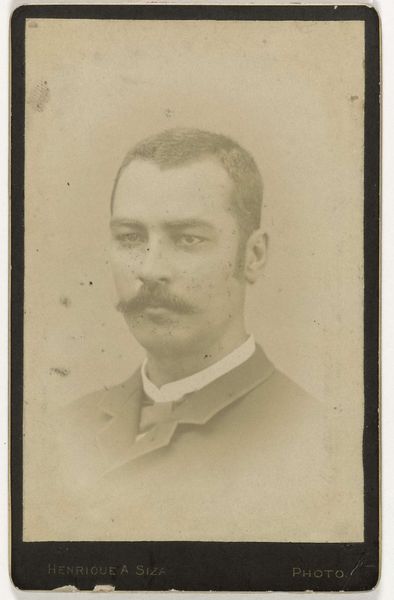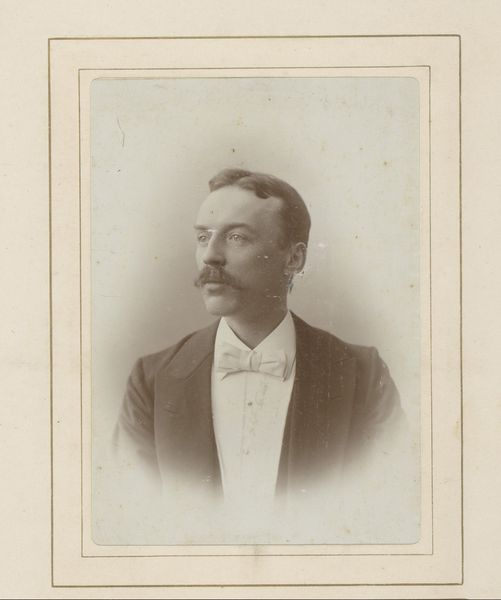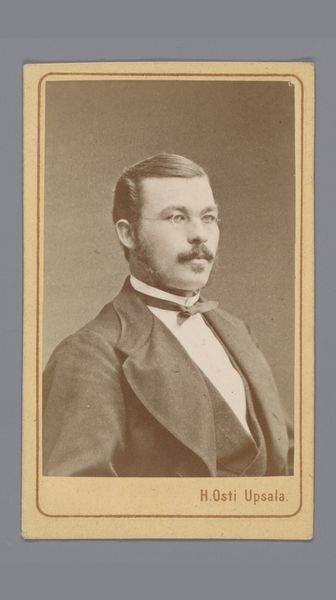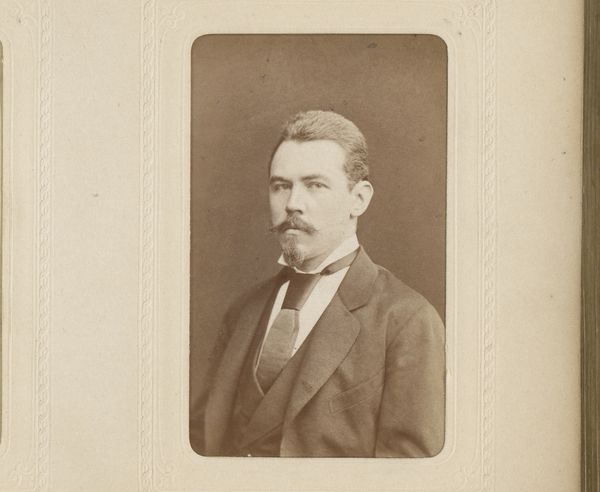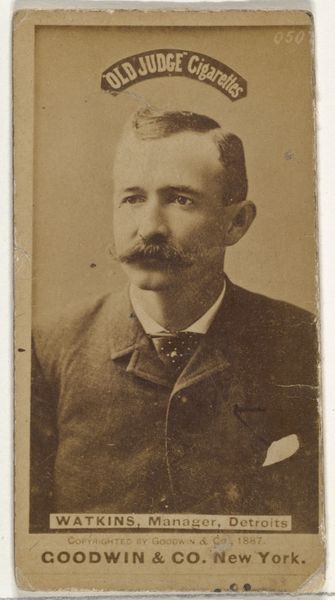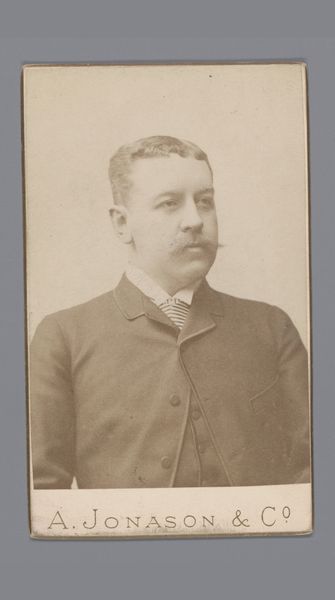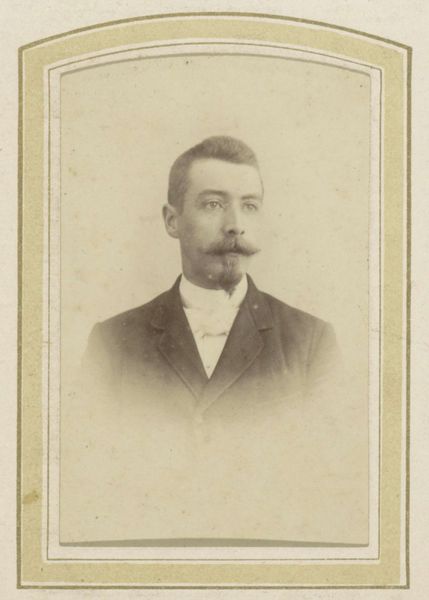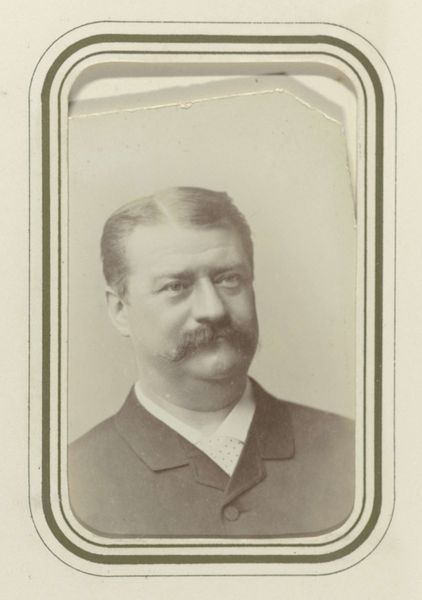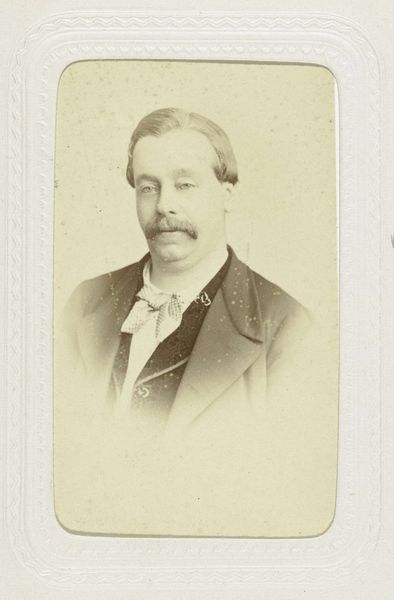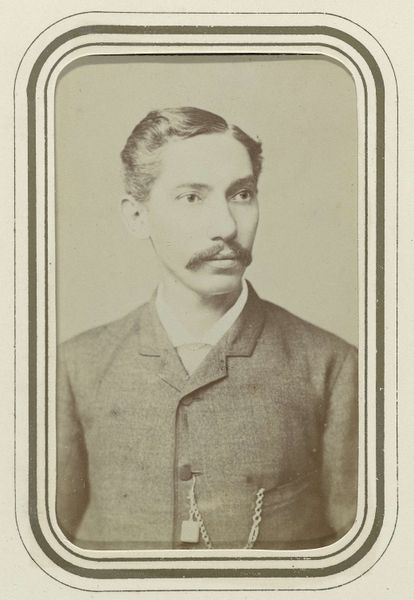
photography, gelatin-silver-print
#
portrait
#
caricature
#
charcoal art
#
photography
#
gelatin-silver-print
#
portrait drawing
#
portrait art
#
realism
Dimensions: height 101 mm, width 63 mm
Copyright: Rijks Museum: Open Domain
Editor: This is "Portret van Jacob Evert Wesenhagen," a gelatin silver print from 1891 by Clarissa Heilbron. The man in the portrait seems very composed, but there's also a slight stiffness about him. How do you interpret this work? Curator: This image is interesting because it provides insight into the constructed nature of identity in the late 19th century. Consider the sitter’s pose, the formality of his attire; how do these elements contribute to a narrative of bourgeois masculinity? What might they be concealing, consciously or unconsciously? Editor: So, it's less about him as an individual and more about him fitting into a social role? Curator: Precisely. Photography at this time was becoming more accessible, yet portraiture retained a sense of deliberate construction. Think about the power dynamics at play: Who had access to the technology? Who controlled the representation? Editor: That's a good point. It makes me wonder about Clarissa Heilbron as a female artist in that period, portraying men of that class. Curator: Exactly! We must also question whose gaze is being privileged. Is Heilbron reinforcing societal norms or subtly subverting them through her artistic choices? Can we detect any hint of her own commentary in the photograph's composition or tone? Editor: This makes me rethink the power structures within portraiture. It's more layered than I initially thought. Curator: Indeed. By situating this photograph within the context of 19th-century social hierarchies and Heilbron's unique position, we can unravel a richer understanding of its significance. Editor: Thanks for opening my eyes to those complexities. I’ll never look at portraits the same way again.
Comments
No comments
Be the first to comment and join the conversation on the ultimate creative platform.
